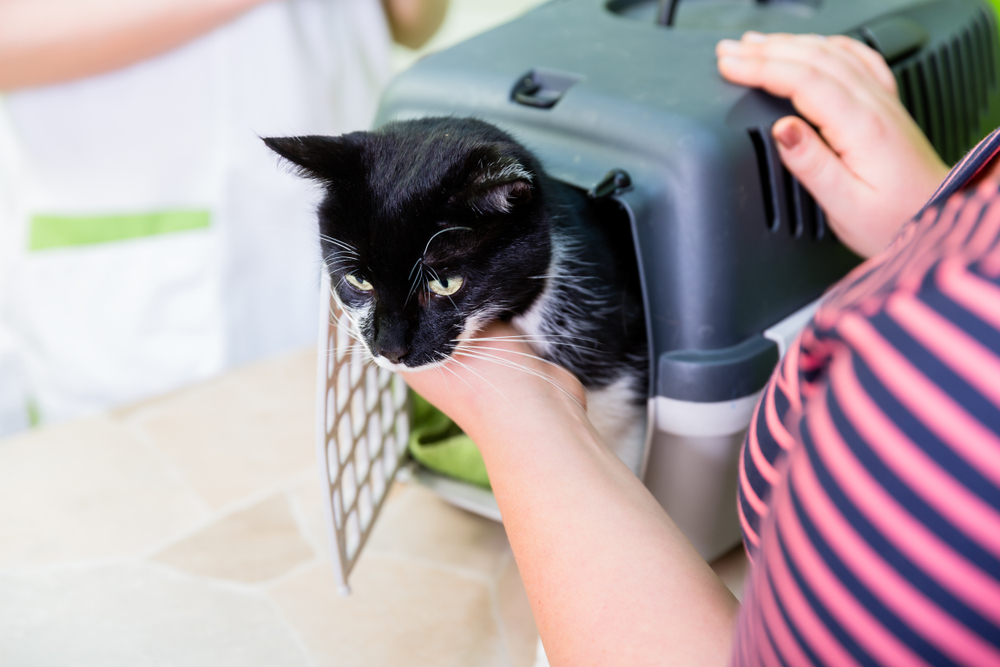Welcoming a homeless pet to your family can be a tremendously rewarding experience. When you adopt a shelter pet, you give that animal a new life by giving them a fur-ever home, and—in turn—you open shelter space for another animal who might desperately need it. Keep in mind, however, that pet adoption comes with challenges, and you need to reflect and prepare before bringing home your new four-legged family member. If you are considering pet adoption, answer our Providence Vet team’s questions to help ensure a smooth transition.
Are you ready to adopt a pet?
Before adopting a pet, you need to reflect on whether you are emotionally, physically, and financially prepared for pet ownership responsibilities. Set aside some time to honestly answer the following questions:
- Do you have enough time? — Pets require a great deal of time, especially during the transition period as they meet new family members and become familiar with their new environment and expectations. Do you have time to meet a pet’s basic needs such as daily exercise, trips to the veterinarian, and training? If you have no time to spare, now may not be the right time to adopt a pet.
- Do you work long hours? — Pets rely on their owners to care for their needs, and a job that requires you to work long hours outside of your home can make that more challenging. While cats are generally OK home alone for longer periods, most dogs need to relieve themselves at least every four to six hours. If you cannot get home during the day, enlist the help of a trusted friend or family member, or hire a professional to let out your dog during the workday.
- Do you travel for work? — If your job requires frequent travel, ensure you have a plan for your pet. If you live alone or no one in your home can care for your pet while you are away, boarding them or hiring a sitter are great options. However, your pet requires quality time and affection to bond with you, and if you travel frequently, you and your pet may not become as close as either of you would like.
- Can you afford to care for a pet? — In addition to time, a pet requires a financial commitment. A pet’s food, supplies, and routine veterinary care can be costly, and an unexpected medical emergency can cost thousands of dollars.
Which type of pet is right for you?
Once you feel confident that you are ready to adopt a pet, consider the type of pet that will best suit your lifestyle. Research breeds to ensure you and your pet will be a great fit. When assessing a breed, consider the following characteristics:
- Energy level
- Compatibility with children and other animals
- Common behavioral issues
- Size
- Coat type, especially if you are an allergy sufferer
- Common medical conditions

Have you pet-proofed your home?
To set up your new pet for success and ensure their safety, pet-proof your home. Although you cannot prevent all accidents, reduce your pet’s injury risk by following these pet-proofing tips:
- Check that fences are secure, with no gaps.
- Cover electrical cords.
- Put breakable or easily damaged items out of your pet’s reach.
- Install safety latches on bathroom and kitchen cabinets.
- Use baby gates to keep your pet out of certain areas of your home as they adjust to their new environment.
- Put cleaning products and medication on shelves or in cabinets your pet cannot reach.
Do you have essential pet supplies?
As do humans, pets have essential needs to survive. A new pet—especially a puppy or kitten—will need some essentials to get settled into their new home, including:
- Leash, harness, and adjustable collar
- Secure crate
- Baby gates
- Pet bed
- Food and water bowls
- Pet food and treats
- Chew toys
- Grooming supplies
- Pee pads or litter box and litter
How can you help your new pet adjust?
A new pet needs time and support as they adjust to their new environment. Have patience with your pet, and help them settle in by following these tips:
- Give your pet a tour — When you bring your new pet home, walk them on a leash around the inside and outside of your home to give them an opportunity to adjust to the new sights and smells.
- Provide a safe space — A pet can feel stress when trying to settle in a new home. Provide your pet with a quiet area where they can retreat if they feel overwhelmed or scared.
- Introduce your pet gradually — Your new pet has a lot to explore and learn about their new home, so try to avoid making too many introductions at once. Give your pet time to adjust to their environment before introducing them to other pets, family members, and friends.
Adopting a pet is an exciting experience. With planning and preparation, you can help your pet adjust and successfully transition to their new home. In addition, give your new pet a healthy foundation by scheduling their first wellness exam with our Providence Vet team.






Leave A Comment